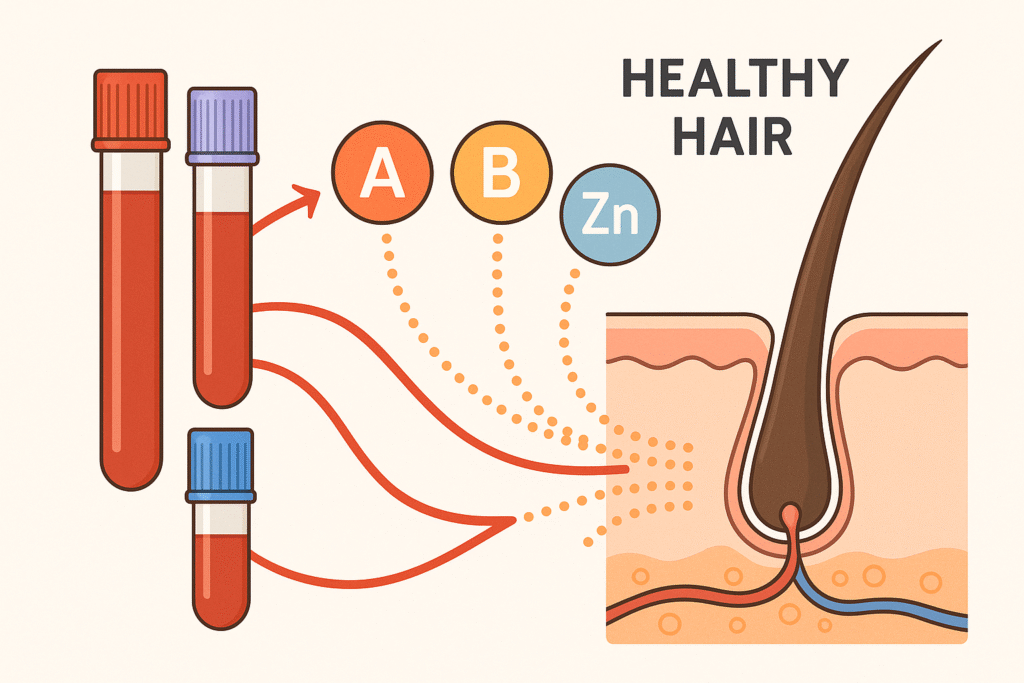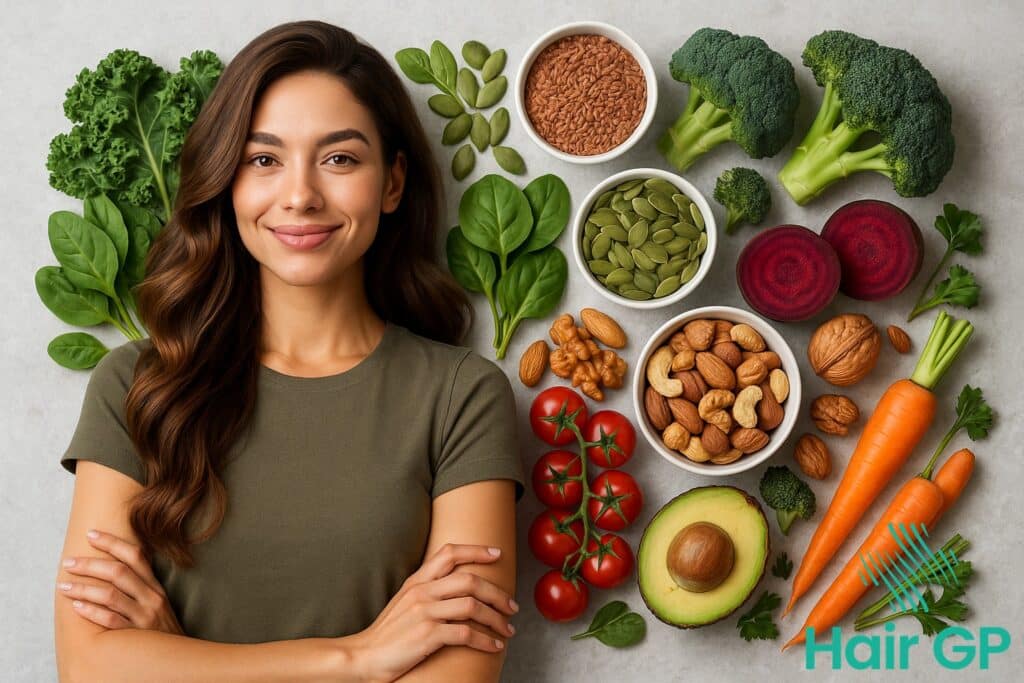Introduction:
Hair loss can be distressing, and while several factors contribute to it, one often overlooked aspect is nutrition. The health of your hair is a reflection of the overall nutritional status of your body. In this blog post, we’ll explore key hair growth nutrients that are essential for maintaining and enhancing hair health and hair growth. Including these in your daily diet can help fortify your hair from the inside out.
Table of contents
- Introduction:
- 1. Protein: The Building Block Of Hair Growth Nutrients
- 2. Iron: Fueling Hair Growth
- 3. Vitamin C: Collagen and Iron Absorption
- 4. Omega-3 Fatty Acids: Shine and Growth
- 5. Zinc: Hair Tissue Growth and Repair
- 6. Biotin (Vitamin B7): Strengthening Keratin Infrastructure
- Conclusion:
- Related Links

“Correct nutrition and a balanced diet are integral for healthy, strong hair.”
Dr Amy
1. Protein: The Building Block Of Hair Growth Nutrients
Hair is primarily made of keratin, a protein, which underscores the importance of protein in your diet. A lack of adequate protein can lead to hair thinning and loss. Include healthy sources of protein like eggs, fish, lean meats, and legumes in your diet for healthy hair to support hair structure and growth.
2. Iron: Fueling Hair Growth
Crucial for hair health iron helps red blood cells carry oxygen to your cells, including hair follicles, which is vital for their growth and repair. Iron deficiency is a common cause of hair loss, especially in women. Good sources of iron include red meat, spinach, lentils, and fortified cereals are all excellent in your diet for healthy hair.


3. Vitamin C: Collagen and Iron Absorption
Vitamin C is not only a powerful antioxidant but also plays a critical role in collagen production, an important part of hair structure. It also helps in the absorption of iron from plant-based foods. Incorporate fruits like oranges, strawberries, and kiwis, as well as vegetables like bell peppers and broccoli, into your meals to ensure you get enough vitamin C.
4. Omega-3 Fatty Acids: Shine and Growth
Omega-3 fatty acids are known for their anti-inflammatory properties and help nourish the hair and support thickening. Since the body can’t make them, incorporating rich sources like flaxseeds, walnuts, and fatty fish in your diet for healthy hairsuch as salmon and mackerel is essential for promoting scalp health and hair shine.
5. Zinc: Hair Tissue Growth and Repair
Zinc plays a key role in hair tissue growth and repair. It also helps keep the oil glands around the follicles working properly. Hair loss is a common symptom of zinc deficiency. To boost your zinc intake, eat foods like oysters, beef, pumpkin seeds, and chickpeas.
6. Biotin (Vitamin B7): Strengthening Keratin Infrastructure
Biotin is well known for its role in hair health. It supports the production of keratin, a protein that makes up a large part of hair. While biotin deficiency is rare, making sure you have enough can support hair strength and vitality. Eggs, almonds, cauliflower, and cheeses are great sources of biotin.
Conclusion:
Integrating a variety of these nutrients into your daily diet can create a solid foundation for healthy hair. Diet plays a crucial role in hair health, it’s important to remember that it is one part of a multifaceted approach to hair loss prevention and restoration. Consistency in your dietary habits, combined with proper hair care, can result in visibly healthier hair. If you’re experiencing significant hair loss, it might be worthwhile to discuss your nutritional needs with a healthcare provider to ensure there are no underlying health issues. Remember, at the Hair GP, we understand that hair restoration is a journey that encompasses various aspects of health and well-being. For more personalised advice or to learn about our comprehensive hair restoration treatments, feel free to contact us or visit our clinic.










